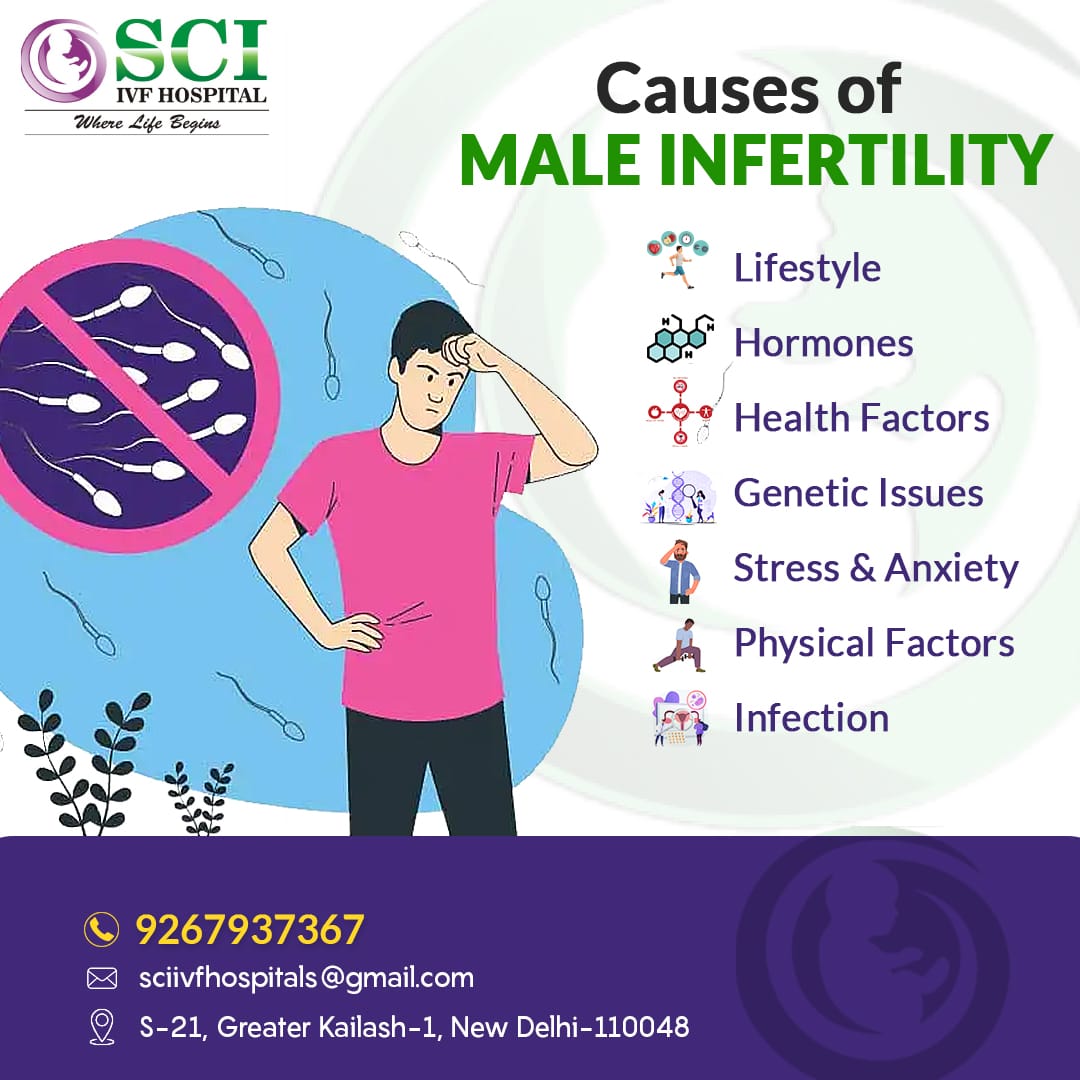Male infertility is a frequent health issue nowadays. There are a lot of challenges to overcome in the process of trying to conceive. You and your spouse may still be able to start a family, even if you’ve been diagnosed with infertility. Male infertility treatment in Delhi and other procedures may improve fertility rates.
Diagnosis
The diagnosis procedures might include the following:
Medical Record
Possible first-step inquiries include:
- A look over the patient’s medical background, including any previous procedures and the drugs they’ve been taking.
- A family history of infertility and/or congenital abnormalities is discussed.
- The investigation of environmental and societal factors that may have led to exposure to harmful chemicals and their possible effects on fertility.
Physical Examination
After that, your pelvic organs (including your genitalia, testicles, prostate, and scrotum) will be subjected to a comprehensive physical examination by the best male infertility specialist in Delhi.
Tests in the lab
The laboratory tests might include:
- Urinalysis:These may be present when an infection is present.
- Semen Evaluation:The assessment considers the amount of the ejaculate, the actual sperm count, and the ejaculate’s fluidity in addition to the sperm’s motility or movement.
- Hormonal Tests:Testosterone and follicle-stimulating hormone (FSH) levels may be used as indicators of general hormonal health and sperm generation, respectively. Other tests, such as serum LH and prolactin, may be performed if preliminary testing calls for more hormone analysis.
Further testing may be necessary if a diagnosis is not immediately identifiable from the first assessment. This include:
- Seminal Fructose Test:Checking whether the seminal vesicles add the correct amount of fructose to the semen.
- Post-ejaculate Urinalysis:Examining for retrograde ejaculation or blockage.
- Semen Leukocyte Analysis:To determine whether there are leukocytes in the sperm.
- Anti-sperm Antibodies Test:To detect antibodies that may cause or contribute to sterility issues.
- Sperm Penetration Assay (SPA):The sperm’s fertilization potential must be verified.
- Ultrasound:To check for blockages in the ejaculatory ducts, seminal vesicles, and prostate.
- Testicular Biopsy:To find out whether there is a problem with sperm production or if there is a blockage.
- Vasography:To inspect the duct system’s construction and find any obstacles.
- Genetic Testing:These tests are performed to rule out the possibility of Y chromosomal mutations or to check for cystic fibrosis in vasectomy males.
Treatment
Some methods used to treat male infertility are:
- Surgery:For instance, surgical treatment for a varicocele or vas deferens obstruction is commonplace. There is a way to undo a previous vasectomy. When no sperm can be found in the ejaculate, sperm may typically be extracted from the testicles or epididymis.
- Antibiotics to treat infections:While antibiotic therapy for a reproductive tract infection often results in a full recovery of fertility, this is not always the case.
- Treatments for difficulties in having sexual relationships: In cases of erectile dysfunction or premature ejaculation, treatment with medication or psychotherapy might boost fertility.
- Hormonal therapy and medication:If the best male infertility specialist in Delhi determines that abnormalities in hormone levels or hormone metabolism are to blame for your infertility, they may prescribe hormone replacement therapy or other drugs.
- Assisted reproductive technology (ART):Depending on your situation and preferences, ART treatments may entail getting sperm by regular ejaculation, surgical extraction, or from donor persons. The sperm is subsequently utilized for IVF, ICSI, or insertion into the female vaginal canal.
Conclusion
At SCI IVF Hospital, with today’s medical advancements, 90% of infertile men may produce children of their genetics. Male infertility treatment in Delhi includes surgery, medical procedures, and changes to one’s lifestyle to improve one’s fertility. If you and your spouse have been trying to have a baby for a year without success, you must talk to a doctor.





